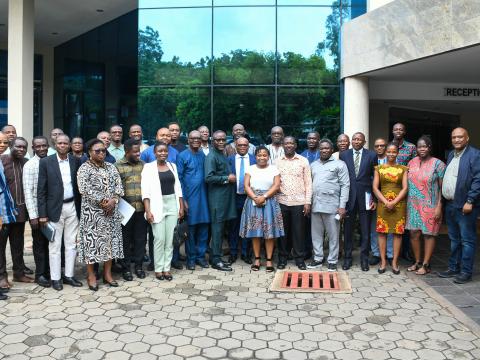Parliamentary dialogue to address WASH challenges in Northern Ghana

“Access to sustainable Water, Sanitation and Hygiene (WASH) services is the foundation for improved health, quality education, economic opportunities, increased household income and socio-economic development." This statement was made by the National Director of World Vision in Ghana, Mr. Dickens Thunde, during discussions with members of Parliament under the theme “Prioritising WASH in Northern Ghana for accelerated socio-economic wellbeing”.
According to him, as believers in a better world for children, the lack of access to safe water and toilet facilities in schools is not only regrettable but also very worrying, especially when many of the available toilet facilities in schools do not have to change rooms for girls. This does not make the school environment conducive and friendly to the girl child, particularly those who have reached the age of puberty.
The purpose of the parliamentary dialogue organised by World Vision in Ghana is to engage the direct representatives of the people of Ghana. This is to analyse available data and discuss issues to achieve investments for sustainable WASH services, equitable delivery of WASH services to the poorest and deprived regions, and prioritisation of improved WASH services delivery for accelerated socio-economic wellbeing.
The event brought together 12 Members of Parliament (MPs) from the Northern part of the country, Civil Society Organizations, and WASH policymakers.
The Speaker of Parliament, Hon. Alban S.K. Bagbin stated in a keynote address, read on his behalf by his Counsel, Hon. Magnus Kofi Amoatey, that it is the responsibility of leaders not only to be seen as protecting the lives of those whom they lead but also taking pragmatic and aggressive initiatives to implement far-reaching initiatives. Initiatives that will remove any menace, such as illegal mining that threatens the nation’s water bodies and provide safe and potable water to the people.
He appealed to Members of Parliament to prioritise and place the outcomes of the dialogue at the centre of development initiatives and resource allocation on the floor of Parliament.